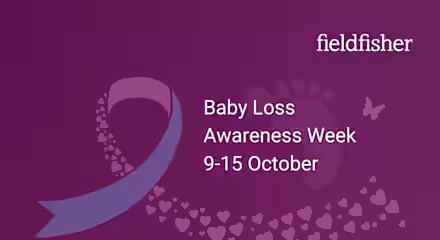Pursuing a claim where NHS medical care during pregnancy and birth was substandard can help provide vital answers for families grieving a stillbirth. This can include midwifery care in hospital or at home, negligent GP advice or substandard care on a labour ward or during delivery.
Bereaved families may consider that the tragedy could have been avoided with better medical care from the NHS.
We are happy to discuss your concerns in confidence on the phone, and if you decide to pursue a claim, we will guide you through every step of the process with sensitivity and respect.
Compensation can help fund expert care and support for physical and psychological injury to help parents and their families understand their loss and prepare for the future.
Can I claim against the NHS?
Investigating the reasons behind a stillbirth can also help NHS trusts and their hospitals improve maternity care to keep mothers and babies safer. It should not impact any subsequent care or treatment to the claimant.
We have many years' experience dealing with stillbirth and birth injuries such as cerebral palsy and understand the enormity of loss. We work extremely hard for all our clients, and encourage NHS trusts to provide clear and detailed information to help explain what happened.
How much will a stillbirth compensation claim cost?
We work on a no win, no fee basis.
If you’re suffering from the impact of a stillbirth, you can seek legal advice as soon as possible. You generally have three years to make such a claim.
What does a stillbirth claim include?
Substandard medical care leading to stillbirth can include:
- Misinterpretation of test or scan results can mean vital signs are missed that could have resulted in different care during pregnancy and birth.
- Failing to conduct routine tests, such as blood pressure monitoring, or when health concerns are flagged, such as pre-eclampsia, can cause delays and result in danger to the mother or baby.
- Failure to investigate lack of or reduction in foetal movement reported by a mother or another medical professional.
- Failure to refer for appropriate assessment such as when a mother is considered high risk because of diabetes, obesity or high blood pressure.
- Inadequate antenatal monitoring.
- Delay in recognising placental abruption.
- Delay in recognising reduced oxygen levels to the baby.
- Communication issues resulting in the wrong or delayed care.
- Poor or delayed decisions during the birth of a baby, including assisted delivery or emergency caesarean section.
What happens when I begin a compensation claim?
Your lawyer will listen to you and discuss your experience to decide if you have a realistic claim. They will write to the parties involved to access relevant medical records and any internal investigation reports. They will instruct expert(s) to provide evidence to present your case to the relevant hospital trust.
They will notify the hospital trust that a claim is being investigated and offer the chance for an admission of liability. If none is forthcoming, proceedings against the hospital trust will be filed at court.
Once a trust admits liability, your lawyer will 'quantify' your loss and present it to the trust or the court. This will generally be discussed between the parties, until a suitable sum can be negotiated.
Once a settlement is agreed, this sum will be paid to you. Your lawyer's fees will also be paid by the defendant.
Our award-winning team believes in putting clients first. We are dedicated to achieving the best results possible and pride ourselves on our sensitive approach. Any of our birth injury claims experts below will be pleased to discuss your case and offer free advice over the phone.














